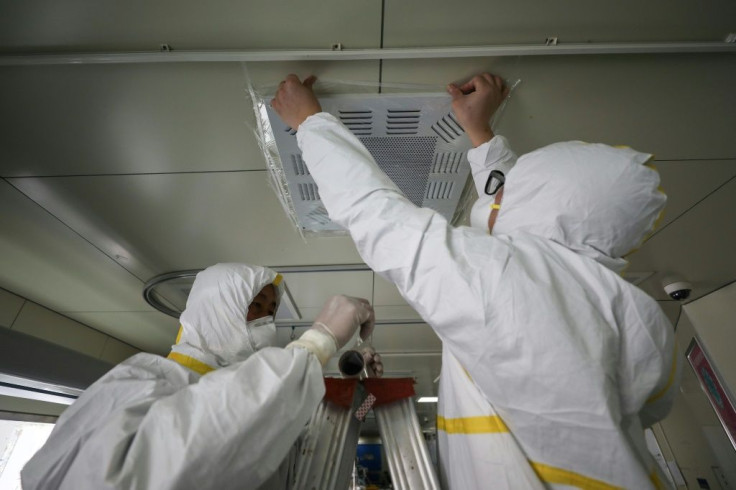Coronavirus Update: 90% of Recovered COVID-19 Patients Still Suffer From Lung Damage
KEY POINTS
- Over 84,000 COVID-19 cases and more than 4,500 deaths reported so far in Wuhan
- Report: Over 90% of recovered COVID-19 patients still haven’t recovered from lung damage
- They also suffer a great deal of depression and stigma
90% of a sample group of recovered COVID-19 patients in Wuhan, China have suffered lung damage and about 5% of them are in quarantine after testing positive for the second time, said a new media report.
Experts at the Zhongnan Hospital of Wuhan University have been conducting follow-up visits with 100 COVID-19 patients who recovered since April.
Here's what they found:
- 90% of the patients’ lungs are still damaged. The ventilation and gas exchange function of their organs hasn’t recovered yet to match the level of healthy people, according to the State-run Global Times.
- The recovered patients could hardly walk 400 meters in six minutes, while their healthy peers could walk over 500 meters in the same duration.
- Some of the recovered COVID-19 patients rely upon oxygen machines even three months after being discharged from their hospital.
- In 10% of these recovered patients, the antibodies against the novel coronavirus have disappeared.
- 5% of them received negative results in nucleic acid tests but positive in Immunoglobulin tests and have been quarantined again. A positive IgM test result indicates that a person has just been infected since Igm is the first antibody secreted by the immune system.
- The recovered patients’ immune system hasn’t completely recovered as they revealed low B cell levels.
- Less than 50% of these recovered patients have returned to work.
"The results revealed that the patients' immune systems are still recovering," Global Times quoted the study’s lead investigator Peng Zhiyong, director of the hospital's Intensive Care Unit at the Zhongnan Hospital of Wuhan University.
The report also revealed that the patients suffered a great deal of depression and a sense of stigma. Most of these recovered COVID-19 patients told the researchers that their own families weren’t willing to have dinner with them at the same table.
The findings of the study are significant since the coronavirus first emerged in the Wuhan city of China.
COVID-19 has affected over 84,000 individuals in the city and has claimed the lives of more than 4,500 people so far.
This week, China reported 27 new confirmed COVID-19 cases including 22 locally-transmitted ones.

© Copyright IBTimes 2024. All rights reserved.






















